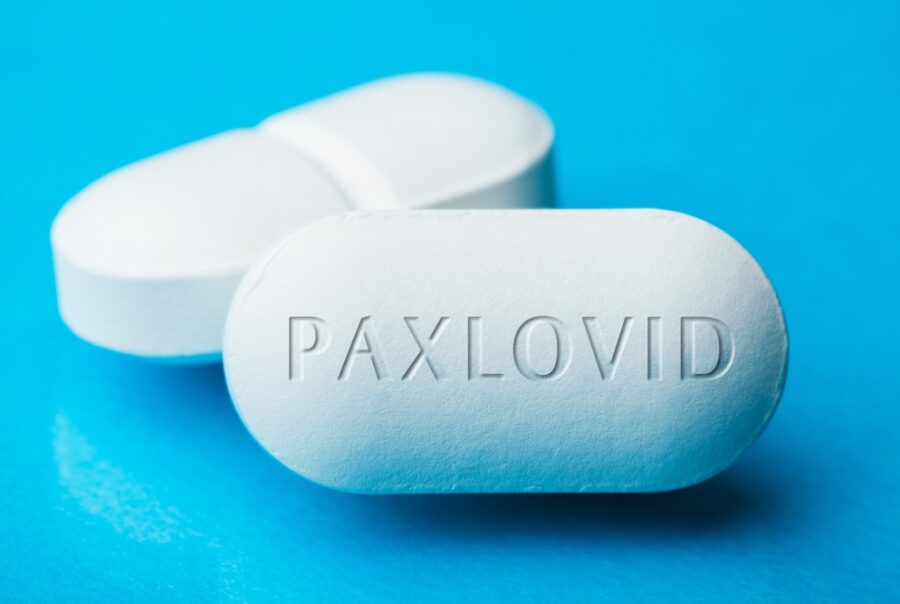Metformin is a common medication for diabetes, but we are also learning about many other ways that it has positive effects on health.
PROJECT
Metformin
HUMAN HEALTH
PROJECT
Metformin
HUMAN HEALTH
Project summary
Background
- Metformin is an inexpensive, safe medication commonly used to treat diabetes. It has diverse impacts on the body, and many scientists are studying how metformin works.
- Clinical trials and other studies are underway to fully understand the impact metformin has on preventing and treating human diseases beyond diabetes.
Key points
Metformin shows promise in treating diverse health conditions. This webpage provides detailed information about metformin’s impact on the following:
COVID-19
Results from the COVID-OUT controlled clinical trial showed that metformin was an effective treatment for COVID-19, reducing serious outcomes by 42%. Metformin also reduced Long COVID incidence by 41%, and lowered the amount of the SARS-CoV-2 virus.
Polycystic ovary syndrome
Metformin is used in the treatment of PCOS to reduce excess body weight, glucose, and lipid levels, as well as to regulate menstrual cycles and ovulation.
Cardiovascular health
Research on metformin use and cardiovascular disease has reported reduced mortality and cardiovascular events in diabetic and non-diabetic patients with coronary heart disease, but not in myocardial infarction and coronary artery patients without type 2 diabetes. Atrial fibrillation patients may benefit from metformin.
Cancer
Metformin has a protective effect against some types of cancer, such as breast or colorectal cancer. It may also work with other cancer treatments. However, metformin may not reduce the risk of all cancers in diabetic patients, and more research is needed in non-diabetics.
Neurological disease
Metformin is being studied for its effects on Alzheimer’s disease, Parkinson’s disease, epilepsy, multiple sclerosis, depression, and stroke. While some studies have yielded positive results, more research is needed.
Aging
Due to its mechanisms of action and potential preventive health benefits, metformin is at the forefront of the growing field of anti-aging research.
Parsemus' role
The Parsemus Foundation supported enrollment efforts for several clinical trials of drugs for COVID-19 treatment, including the COVID-OUT study evaluating metformin. For more information, see our Metformin for COVID page.
We also support inexpensive and safe treatments for women’s health and Alzheimer’s disease.
Topics
- Metformin — the wonder drug
- Lowering blood sugar with metformin
- Metformin and COVID-19
- Metformin as a PCOS treatment
- Cardiovascular health improves with metformin
- Slowing cognitive decline and dementia with metformin
- Reducing the risk of cancer
- Metformin may slow the aging process
- A small foundation’s role in the fight against COVID-19
- Additional resources
Other human health projects
Metformin – the wonder drug
Is metformin a wonder drug? Some scientists think so due to its many positive health impacts.
History
Metformin comes from a traditional herbal medicine called Galega officinalis, which was used for a variety of purposes in medieval Europe. Guanidine and related compounds were later isolated from the plant. While it has been known to reduce blood glucose since the early 1900s, guanidine was not widely used due to its toxic effects. In the 1950s, French scientist Jean Sterne conducted human experiments on metformin that resulted in increased interest. Metformin was approved for diabetes in the U.K. in 1958 and in Canada in 1972 but was not the preferred medication. Long-term studies were completed in the 1990s that increased its use and approval for Type 2 diabetes in the U.S. in 1994. It’s available in both immediate and extended-release formulas. In 2013, metformin was added to the World Health Organization’s List of Essential Medicines (see this review).
Safety
Metformin has a long history of safe use. It has been prescribed for 70+ years to treat Type 2 diabetes. Metformin is available to take orally and has a very good safety profile. The most common side effects involve gastrointestinal issues such as nausea, diarrhea, and loss of appetite. Gradually increasing the dose and taking this medication with food can help reduce symptoms, which usually decrease over time.
Some individuals develop a deficiency in vitamin B12 or folic acid, which may require supplements. Lactic acidosis is a rare but serious risk, especially for individuals with kidney impairment. Only about 4% of participants in metformin clinical trials in the U.S. were unable to continue due to side effects. Serious adverse events are infrequent and generally limited to lactic acidosis, which occurs only in persons with renal or hepatic insufficiency or other contraindications. Metformin is not recommended for individuals with liver or kidney problems, or those receiving treatment for heart failure.
Expanding uses of metformin
Metformin is known to have effects on health beyond glucose regulation. Studies on type 2 diabetic individuals taking metformin have shown reduced risks of heart disease, cancer, and neurodegenerative diseases. Metformin has also been used in the treatment of polycystic ovary disease and COVID-19. This page provides a brief overview of some of its possible uses. While it shows promise to treat or prevent a variety of health conditions, more randomized clinical trials are needed to fully understand when and how it should be used.
Lowering blood sugar with metformin
Metformin is best known for its ability to lower blood sugar. It’s the most widely prescribed medication for the treatment of type 2 diabetes, with over 150 million people worldwide taking it daily.
Metformin was first used to treat diabetes in the 1950s. It’s considered a safe drug. Metformin treatment has not been associated with hypoglycemia (low blood sugar) unless used with other glucose-lowering medicines such as sulfonylureas or insulin.
How metformin lowers blood sugar
Metformin inhibits glucose production in the liver. It increases the use of glucose by the skeletal muscles and fat tissues by increasing insulin sensitivity in these tissues. Despite metformin being used for many years, uncertainty remains about its exact molecular action in the body.
Weight loss
Metformin is associated with weight loss when used to treat diabetes and thus differs from most other antidiabetic medications that are associated with weight stability or gain. For example, during the Diabetes Prevention Program clinical trial, individuals receiving metformin for Type 2 diabetes had an average weight loss of 2.1 kg (4.6 lbs).
Metformin and COVID-19
The University of Minnesota led the COVID-OUT clinical trial, which finished enrolling participants in 2022. It was a large, rigorous study to understand whether common, inexpensive medicines (including metformin) prevent severe COVID-19 infection and Long COVID symptoms.
The main findings, which were published in the New England Journal of Medicine, included that metformin reduced emergency room visits, hospitalization, or death from COVID-19 infection by 42%. Metformin reduced serious outcomes by over 50% when taken immediately after symptoms.
There was also a 41% decrease in the incidence of Long COVID when metformin was taken shortly after COVID-19 infection. When taken within four days of symptoms, metformin reduced Long COVID by 63%. Further analyses indicated that metformin had anti-viral effects. Metformin decreased the amount of COVID-19 virus (SARS-CoV-2) by 3.6 fold.
For more information on the use of metformin to treat COVID-19, see our page COVID-19 page.
Metformin as a PCOS treatment
Polycystic ovary syndrome (PCOS) is a common hormonal imbalance that affects 6-13% of women of reproductive age. It occurs when the ovaries produce high amounts of androgens (like testosterone), causing irregular periods, infertility, acne, excess body hair growth, obesity, cysts on the ovaries, and other symptoms.
The high androgens are influenced by insulin resistance, which often causes high glucose levels and even diabetes. PCOS also increases the risk of developing high blood pressure, heart disease, endometrial cancer, sleep apnea, and depression or anxiety.
Treatment of PCOS depends on the symptoms, individual medical history, and whether pregnancy is desired. Several medications have been used to treat PCOS, with metformin as a key drug. It’s used off-label as a first-line treatment for excess body weight, glucose, and lipid profiles. A 2023 meta-analysis concluded that “Metformin should be considered an efficacious adjunct to lifestyle interventions in adults with PCOS, especially for those with a higher BMI (body mass index), to improve weight loss, insulin resistance, and lipids.”
Metformin works by acting on the underlying insulin resistance by improving insulin sensitivity and reducing glucose production. There’s also evidence that it reduces high androgen levels.
Metformin is also an important tool to address irregular cycles and infertility. It’s used as an alternative to oral contraceptives to improve menstrual cycles and ovulation. Studies have shown that metformin reduces weight gain during pregnancy and decreases the risk of preterm delivery.
“Metformin should be considered an efficacious adjunct to lifestyle interventions in adults with PCOS, especially for those with a higher BMI (body mass index), to improve weight loss, insulin resistance, and lipids.”
Conclusion from a 2023 meta-analysis: https://doi.org/10.1093/ejendo/lvad098
Cardiovascular health improves
with metformin
Metformin has a potential protective effect against cardiovascular diseases and associated mortality in individuals with type 2 diabetes. For example, a meta-analysis of 40 clinical trials of over 1 million individuals concluded that metformin can significantly reduce mortality and cardiovascular events in diabetic and non-diabetic patients with coronary heart disease. However, metformin had no significant effect in reducing the incidence of cardiovascular events in myocardial infarction and coronary artery patients without type 2 diabetes.
Metformin may have beneficial effects on cardiovascular health by influencing multiple pathways, including reducing the synthesis of advanced glycation end products (AGEs or compounds formed by glycation of proteins, lipids, and nucleic acids by reducing sugars), reactive oxygen species, and modulating high-density lipoprotein (HDL) functionality. Metformin is also known to lower risk factors for cardiovascular disease, such as blood fats, body weight, and blood pressure.
Atherosclerosis involves the formation of atherosclerotic plaques on the walls of the arteries. It can eventually interfere with blood flow resulting in stroke and ischemic heart disease. Metformin has protective vascular effects by influencing two signaling pathways that reduce oxidative stress and inflammation, which are known to cause atherosclerosis.
In large clinical observational studies, metformin has been associated with a reduced risk of atrial fibrillation in people with diabetes. An ongoing clinical trial may determine whether it’s effective in individuals without diabetes. While animal studies show promise, there’s a lack of randomized clinical evidence to determine whether metformin can be a first-line drug for patients with diabetic cardiomyopathy.
Reducing the risk
of cancer
Individuals with type 2 diabetes are at an increased risk of cancer. In the last two decades, observational studies and meta-analyses have reported a reduction in the incidence of cancer and improved outcomes with the use of metformin for diabetics. Some studies also reported a lower cancer risk in non-diabetic individuals receiving metformin. This has led to great interest in evaluating the potential for metformin to be used for cancer prevention and treatment. See details in the “Deep Dive” section.
As an antidiabetic medicine, metformin has been shown to decrease the formation of glucose in the liver, enhance insulin sensitivity in muscle and fat tissue, and increase glucose uptake in the gut.
A recent meta-analysis reported that metformin was associated with a decreased risk of various types of cancer in observational studies. For example, metformin treatment for type 2 diabetes in people with breast or colorectal cancer improved survival outcomes and prognosis. Metformin also worked well in conjunction with chemotherapy and immunotherapy for these cancers. Metformin has also been studied in relation to cancer of the stomach, liver, lung, ovaries, pancreas, and prostate (see this review).
However, not all results have been favorable. An analysis of 27 randomized controlled trials of individuals with obesity and/or diabetes found no difference in the incidence of cancer for those taking metformin. A 2022 randomized clinical trial reported that in patients with high-risk operable breast cancer without diabetes, metformin did not significantly improve invasive disease–free survival.
The protective role of metformin appears to be dependent on the subtype of cancer (especially for breast cancer), the hormone levels, and the glucose level. The differences found between studies could also be due to differences in the methods used, including different experimental designs. Some studies have small sample sizes, short follow-up duration, and other factors that limit their generalizability. Challenges also lie in the difference in metformin’s impact on different forms of cancer and whether the patient has diabetes or not.
With results expected from ongoing clinical trials involving metformin in the coming years, we’ll know much more about the impacts of metformin for treatment and prevention of cancer.
Deeper Dive
Scientists do not yet know precisely how metformin affects cancer cells. Potential anticancer actions of metformin include the following (for details see this review):
- Inhibition of mitochondrial respiratory chain complexes, including modulating the AMPK/mTOR pathway and inhibiting cytokines. This may lead to anticancer effects, including reduced protein and lipid synthesis, slower cancer spread, activation of autophagy (cellular breakdown and recycling), and inhibition of inflammatory responses.
- Effect on cell proliferation markers and reduced production of ROS (reactive oxygen species), oxidative stress, and DNA damage.
- Promotion of an effective immune response against tumor suppression.
- Reversal of aerobic glycolysis that is common in tumor cells, characterized by an increase in fatty acid degradation and anaerobic glycolysis.
- Other potential anticancer properties of metformin include the regulation of micro RNAs and enzymes involved in epigenetic changes.
Slowing the risk of neurological disease with metformin
There’s great interest in metformin’s ability to protect brain health. Metformin can affect neurons in some areas of the brain by activating AMPK (AMP-activated protein kinase) which regulates energy, metabolism, and mitochondrial function. Administration of metformin has been found to reduce neuronal damage and promote the formation of new nerve cells. Dysregulated insulin in the brain is related to aging and neurological diseases like Alzheimer’s and Parkinson’s diseases. Thus, metformin’s ability to regulate insulin may also be important for brain health.
Many studies have been conducted on metformin and neurological disease, but there are conflicting results. More research is required to understand when it may be most appropriately used. A summary of likely uses of metformin is provided here:
- Alzheimer’s disease – Some studies have reported reduced incidence of the disease in type 2 diabetics with metformin alone or with other medications. Yet, a long-term trial found that metformin was associated with a higher risk of Alzheimer’s. More research in diabetic and non-diabetic patients on metformin therapy is needed to clarify these findings.
- Parkinson’s disease – Metformin may provide neuroprotection during treatment with other drugs that cause side effects.
- Multiple sclerosis – Metformin can reduce inflammation, and by activating AMPK, it may be able to repair damaged neurons caused by multiple sclerosis.
- Epilepsy—Metformin may be used to treat seizures in the early stages of the disease to prevent seizure progression. In late-stage seizures, metformin may be combined with other seizure medications to reduce adverse effects while maintaining anti-seizure effects.
- Depression – Research on depression in individuals treated with metformin for type 2 diabetes has shown some promise, but it’s unclear whether it’s helpful in people without diabetes.
- Stroke – An initial study found that metformin treatment for type 2 diabetes reduced the risk of stroke by 50%. More recent meta-analyses reported protective outcomes on mortality and ischemic stroke severity. More clinical research is needed to determine the impact on non-diabetic individuals.
Metformin may slow the aging process
The potential positive impact of metformin on diverse disease processes like diabetes, heart disease, and obesity has led to the question of whether it might slow down aging. Research has more recently focused on metformin’s ability to increase lifespan or “healthspan” (the period free from chronic diseases).
Metformin increases insulin sensitivity. Interestingly, calorie restriction — one of the most effective methods to increase lifespan — has similar mechanisms. As discussed above for specific disease processes, metformin’s impact on aging may occur via the activation of AMPK, which lowers glucose production and stimulates mitochondrial biogenesis. This also leads to a reduction in reactive oxygen species (ROS), reduced inflammation, and reduced accumulation of cells that do not divide (senescent cells). In mice, oral metformin also altered the microbiome to increase bacteria that produce short-chain fatty acids.
While preclinical studies have shown promising results of metformin’s effects on aging and disease processes, clinical studies have had inconsistent outcomes. In fact, the MASTERS trial on strength training reported that metformin had a negative effect on the benefits of physical activity. This effect could be due to a ceiling on muscle mitochondrial function imposed by the drug.
In a review of human studies of eight promising anti-aging therapies, Guarente and colleagues reported that metformin is at the forefront of this research. Much more research on aging and metformin is needed, especially randomized controlled clinical trials. However, there are potential positive impacts of metformin on aging and diabetes, heart failure, and infectious disease. Ongoing trials will help to clarify its impacts on cognitive decline, cancer, and inflammatory diseases/gut microbiome.
Additional resources
General
- Chaudhary S, Kulkarni A. Metformin: Past, Present, and Future. Curr Diab Rep. 2024;24(6):119-130. doi:10.1007/s11892-024-01539-1
- Corcoran C, Jacobs TF. Metformin. In: StatPearls. StatPearls Publishing; 2025. Accessed June 1, 2025. http://www.ncbi.nlm.nih.gov/books/NBK518983/
- Dong Y, Qi Y, Jiang H, et al. The development and benefits of metformin in various diseases. Front Med. 2023;17(3):388-431. doi:10.1007/s11684-023-0998-6
Diabetes
- LaMoia TE, Butrico GM, Kalpage HA, et al. Metformin, phenformin, and galegine inhibit complex IV activity and reduce glycerol-derived gluconeogenesis. Proc Natl Acad Sci USA. 2022;119(10):e2122287119. doi:10.1073/pnas.2122287119
- The Diabetes Prevention Program Research Group. Long-Term Safety, Tolerability, and Weight Loss Associated With Metformin in the Diabetes Prevention Program Outcomes Study. Diabetes Care. 2012;35(4):731-737. doi:10.2337/dc11-1299
COVID-19
- Bode B, Garrett V, Messler J, et al. (2020). Glycemic characteristics and clinical outcomes of COVID-19 patients hospitalized in the United States. J Diabetes Sci Technol 14(4):813-821. (free full text)
- Bramante CT, Beckman KB, Mehta T et al. (2024). Favorable antiviral effect of metformin on severe acute respiratory syndrome coronavirus 2 viral load in a randomized, placebo-controlled clinical trial of coronavirus disease 2019. Clinical Inf Dis May 1, 2024. (abstract)
- Bramante CT, et al. (2023). Outpatient treatment of COVID-19 and incidence of post-COVID-19 condition over 10 months (COVID-OUT): a multicentre, randomised, quadruple-blind, parallel-group, phase 3 trial. Lancet Inf Dis Jun 9 online (free full text).
- Bramante CT, Huling JD, Tignanelli, CJ, et al. (2022). Randomized trial of metformin, ivermectin, and fluvoxamine for Covid-19. N Engl J Med 2022; 387:599-610. (free full text)
- Bramante C, Ingraham N, Murray T, et al. (2021). Metformin and risk of mortality in patients hospitalised with COVID-19: a retrospective cohort analysis Lancet Healthy Long 2(1):e34–41. (free full text)
- Ibrahim S, Lowe JR, Bramante CT, et al. (2021). Metformin and Covid-19: Focused review of mechanisms and current literature suggesting benefit. Front. Endocrinol. 12:587801. (free full text).
- Reis G, Silva EAM, Silva DCM, et al. Effect of early treatment with metformin on risk of emergency care and hospitalization among patients with COVID-19: The TOGETHER randomized platform clinical trial. Lancet Reg Health Am Feb; 6: 100142. (free full text).
- Ojeda-Fernández L, Foresta A, Macaluso G, et al. (2022). Metformin use is associated with a decrease in the risk of hospitalization and mortality in COVID-19 patients with diabetes: A population-based study in Lombardy. Diabetes Obes Metab. 1–8 (free full text).
- Sardu C, D’Onofrio N, Balestrieri ML, et al. (2020). Outcomes in patients with hyperglycemia affected by Covid-19: Can we do more on glycemic control? Diabetes Care 43(7): 1408–1415. (free full text)
- Usman A, Bliden KP, Cho A, et al. (2022). Metformin use in patients hospitalized with COVID-19: lower inflammation, oxidative stress, and thrombotic risk markers and better clinical outcomes. J Thromb Thrombolysis. Jan 18 : 1–9. (free full text)
- Ventura-Lopez C, Cervantez-Luevano K, Aguirre-Sanchez JS, et al. (2022). Treatment with metformin glycinate reduces SARS-CoV-2 viral load: An in vitro model and randomized, double-blind, Phase IIb clinical trial. Biomed Pharmacother 152: 113223. (free full text).
- Zhu L, She Z, Cheng X, et al. (2020). Association of blood glucose control and outcomes in patients with COVID-19 and pre-existing Type 2 diabetes. Cell Metabolism 31, 1068–1077. (free full text)
PCOS
- Attia GM, Almouteri MM, Alnakhli FT. Role of Metformin in Polycystic Ovary Syndrome (PCOS): Related Infertility. Cureus. Published online August 31, 2023. doi:10.7759/cureus.44493
- Ee C, Tay CT. Pharmacological management of polycystic ovary syndrome. Aust Prescr. 2024;47(4):109-112. doi:10.18773/austprescr.2024.030
- Goldberg A, Graca S, Liu J, et al. Anti‐obesity pharmacological agents for polycystic ovary syndrome: A systematic review and meta‐analysis to inform the 2023 international evidence‐based guideline. Obesity Reviews. 2024;25(5):e13704. doi:10.1111/obr.13704
- Melin J, Forslund M, Alesi S, et al. The impact of metformin with or without lifestyle modification versus placebo on polycystic ovary syndrome: a systematic review and meta-analysis of randomized controlled trials. European Journal of Endocrinology. 2023;189(2):S38-S64. doi:10.1093/ejendo/lvad098
- Singh B, Panda S, Nanda R, et al. Effect of Metformin on Hormonal and Biochemical Profile in PCOS Before and After Therapy. Ind J Clin Biochem. 2010;25(4):367-370. doi:10.1007/s12291-010-0090-2
Dementia
- Al-kuraishy HM, Al-Gareeb AI, Saad HM, Batiha GES. Long-term use of metformin and Alzheimer’s disease: beneficial or detrimental effects. Inflammopharmacol. 2023;31(3):1107-1115. doi:10.1007/s10787-023-01163-7
- Cheng YY, Leu HB, Chen TJ, et al. Metformin-inclusive Therapy Reduces the Risk of Stroke in Patients with Diabetes: A 4-Year Follow-up Study. Journal of Stroke and Cerebrovascular Diseases. 2014;23(2):e99-e105. doi:10.1016/j.jstrokecerebrovasdis.2013.09.001
- Imfeld P, Bodmer M, Jick SS, Meier CR. Metformin, Other Antidiabetic Drugs, and Risk of Alzheimer’s Disease: A Population‐Based Case–Control Study. J American Geriatrics Society. 2012;60(5):916-921. doi:10.1111/j.1532-5415.2012.03916.x
- Liu J, Huang Z, Luo F, et al. Effect of metformin on the clinical outcomes of stroke in patients with diabetes: a systematic review and meta-analysis. BMJ Open. 2025;15(1):e092214. doi:10.1136/bmjopen-2024-092214
- Tong B, Ba Y, Li Z, et al. Targeting dysregulated lipid metabolism for the treatment of Alzheimer’s disease and Parkinson’s disease: Current advancements and future prospects. Neurobiology of Disease. 2024;196:106505. doi:10.1016/j.nbd.2024.106505
Cardiovascular disease
- Caturano A, Vetrano E, Galiero R, et al. Advances in the Insulin–Heart Axis: Current Therapies and Future Directions. IJMS. 2024;25(18):10173. doi:10.3390/ijms251810173
- Han Y, Xie H, Liu Y, Gao P, Yang X, Shen Z. Effect of metformin on all-cause and cardiovascular mortality in patients with coronary artery diseases: a systematic review and an updated meta-analysis. Cardiovasc Diabetol. 2019;18(1):96. doi:10.1186/s12933-019-0900-7
- Huang W, Zhao R. Clinical outcomes in type 2 diabetes patients with chronic heart failure treated with metformin: a meta-analysis. Endocrine. 2024;87(2):436-447. doi:10.1007/s12020-024-04025-6
- Mascarenhas L, Downey M, Schwartz G, Adabag S. Antiarrhythmic effects of metformin. Heart Rhythm O2. 2024;5(5):310-320. doi:10.1016/j.hroo.2024.04.003
- Turkistani A, Al‐Kuraishy HM, Al‐Gareeb AI, et al. Pharmacological characterization of the antidiabetic drug metformin in atherosclerosis inhibition: A comprehensive insight. Immunity Inflam & Disease. 2024;12(8):e1346. doi:10.1002/iid3.1346
Cancer
- Amengual-Cladera E, Morla-Barcelo PM, Morán-Costoya A, et al. Metformin: From Diabetes to Cancer—Unveiling Molecular Mechanisms and Therapeutic Strategies. Biology. 2024;13(5):302. doi:10.3390/biology13050302
- Galal MA, Al-Rimawi M, Hajeer A, Dahman H, Alouch S, Aljada A. Metformin: A Dual-Role Player in Cancer Treatment and Prevention. IJMS. 2024;25(7):4083. doi:10.3390/ijms25074083
- Goodwin PJ, Chen BE, Gelmon KA, et al. Effect of Metformin vs Placebo on Invasive Disease–Free Survival in Patients With Breast Cancer: The MA.32 Randomized Clinical Trial. JAMA. 2022;327(20):1963. doi:10.1001/jama.2022.6147
- Lord SR, Harris AL. Is it still worth pursuing the repurposing of metformin as a cancer therapeutic? Br J Cancer. 2023;128(6):958-966. doi:10.1038/s41416-023-02204-2
- Mesquita LA, Spiazzi BF, Piccoli GF, et al. Does metformin reduce the risk of cancer in obesity and diabetes? A systematic review and meta‐analysis. Diabetes Obesity Metabolism. 2024;26(5):1929-1940. doi:10.1111/dom.15509
- Mesquita LA, Spiazzi BF, Piccoli GF, et al. Does metformin reduce the risk of cancer in obesity and diabetes? A systematic review and meta‐analysis. Diabetes Obesity Metabolism. 2024;26(5):1929-1940. doi:10.1111/dom.15509
- O’Connor L, Bailey-Whyte M, Bhattacharya M, et al. Association of metformin use and cancer incidence: a systematic review and meta-analysis. JNCI: Journal of the National Cancer Institute. 2024;116(4):518-529. doi:10.1093/jnci/djae021
- Wang NF, Jue TR, Holst J, Gunter JH. Systematic review of antitumour efficacy and mechanism of metformin activity in prostate cancer models. BJUI Compass. 2023;4(1):44-58. doi:10.1002/bco2.187
- Wang QL, Santoni G, Lagergren J. Diabetes, metformin use, and survival in esophageal cancer: a population-based cohort study. JNCI Cancer Spectrum. 2023;7(4):pkad043. doi:10.1093/jncics/pkad043
Aging
- Dutta, Siddhartha, Rima B. Shah, Shubha Singhal, Sudeshna Banerjee Dutta, Sumit Bansal, Susmita Sinha, and Mainul Haque. 2023. “Metformin: A Review of Potential Mechanism and Therapeutic Utility Beyond Diabetes.” Drug Design, Development and Therapy 17:1907–32. doi:10.2147/DDDT.S409373.
- Guarente, Leonard, David A. Sinclair, and Guido Kroemer. 2024. “Human Trials Exploring Anti-Aging Medicines.” Cell Metabolism 36(2):354–76. doi:10.1016/j.cmet.2023.12.007.
- Triggle, Chris R., Ibrahim Mohammed, Khalifa Bshesh, Isra Marei, Kevin Ye, Hong Ding, Ross MacDonald, Morley D. Hollenberg, and Michael A. Hill. 2022. “Metformin: Is It a Drug for All Reasons and Diseases?” Metabolism 133:155223. doi:10.1016/j.metabol.2022.155223.
- Walton, R. Grace, Cory M. Dungan, Douglas E. Long, S. Craig Tuggle, Kate Kosmac, Bailey D. Peck, Heather M. Bush, Alejandro G. Villasante Tezanos, Gerald McGwin, Samuel T. Windham, Fernando Ovalle, Marcas M. Bamman, Philip A. Kern, and Charlotte A. Peterson. 2019. “Metformin Blunts Muscle Hypertrophy in Response to Progressive Resistance Exercise Training in Older Adults: A Randomized, Double‐blind, Placebo‐controlled, Multicenter Trial: The MASTERS Trial.” Aging Cell 18(6):e13039. doi:10.1111/acel.13039.









